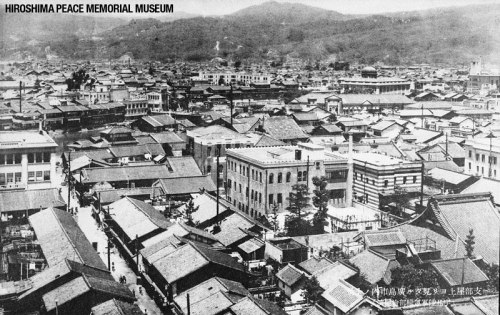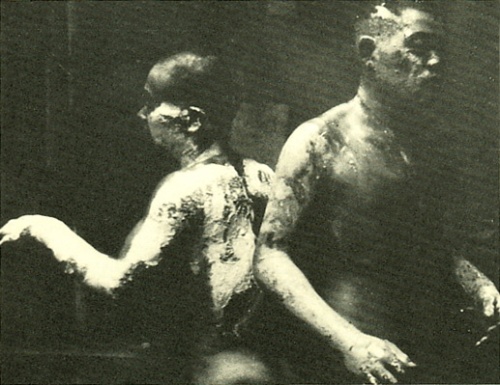Note (28 April 2024): On March 28, I received an email from one of the opinion page editors at The Indian Express asking if I might write an essay on the US vote of abstention in the Security Council on a resolution calling for an immediate ceasefire in Gaza and whether such a vote could be interpreted as a shift in the American position towards Israel. The resolution passed 14-0, with the United States, which is of course a permanent member of the Security Council, casting the only vote of abstention. But the US had, uncharacteristically, not vetoed the resolution, as it had done repeatedly in the past. I submitted my essay a week later but it was published, both in print and online, on April 14 on p. 11 (or see the online edition where it appeared under the title of “The US support for Israel, contrary to opinion, is as strong as ever”). As the online title suggests, I argued that the various opinions that had been voiced suggesting that the US support for Israel was diminishing or might no longer be taken for granted were entirely mistaken and overblown. Events since March 25 and indeed down to the present day have established, as I argued, that the US support for Israel remains, to use the words of Biden and countless number of officials of his administration, “iron-clad”. To think that it might be otherwise, if the US is provoked to breaking-point by Israeli intransigence or arrogance, is to show little understanding of the American establishment’s rigid attachment for Israel. To be sure, some–and some only, let it be clear–of these officials are, in private, anti-Semitic; but their Islamophobic sentiments run still deeper. Similarly, one can be certain that we will continue to hear American officials voice “uneasiness” with Israel’s policies, “discontent” and “dismay” at Israeli arrogance and the impunity with which Israel will continue to ignore the entire world and do what it pleases, and so on. All of American expressions of displeasure are hot air, and just that. A few will object to my remarks with the observation that it is only US restraint that stopped Israel from clobbering Iran. That observation may not be without merit, but to concede that much is not to admit that the US does in fact exercise real restraining power over Israel. One cannot ignore the much larger geopolitical implications of an outright war between Israel and Iran. In any case, the essay below is the slightly longer version of the piece that was published in the Indian Express: as noted above, it is dated only in the sense that other events since in the last few weeks amply demonstrate that the US remains unflinchingly supportive of Israel and therefore complicit in the genocide unfolding in Gaza.
On March 25, during a discussion in the UN Security Council, the United States did something highly unusual: it abstained from a resolution that had been introduced calling for an immediate ceasefire in Gaza. The United States had vetoed similar resolutions in the past, arguing that it would not permit any step that might impede Israel’s right to self-defense. When it last exercised its veto power on February 20, the US justified its action with the observation that any call for a ceasefire perforce had to be linked to the release of all Israeli hostages from Palestinian custody.
Israel’s Prime Minister, Benjamin Netanyahu, immediately pronounced the US abstention a “retreat” from the unstinting support that Israel has received from the onset of the present iteration of a conflict that effectively goes back to the founding of Israel in 1948. As a mark of his displeasure, indeed of his alleged surprise that the US should in any way be signifying a shift in its position of unfettered support towards Israel, Netanyahu cancelled a planned visit by an Israeli delegation to the US to discuss Israel’s imminent invasion of Rafah. Netanyahu and Israel’s military planners have argued that the assault on Rafah is required to eliminate Hamas’s remaining battalions; the United States, importantly, questions not Israel’s right to defend its integrity as a nation-state, but only whether Israel has put into place a comprehensive plan that would guarantee the safety of Palestinian civilians.
Many commentators point to the US vote of abstention, as well as other recent developments such as criticism of Netanyahu by US Senate Majority Leader Chuck Schumer and his call for elections in Israel—angrily dismissed by Netanyahu in a sharply worded rejoinder, “We are not a banana republic—as significant milestones in what is alleged to be an evolving relationship between Israel and the United States. The diplomatic editor of the highly regarded The Guardian, for instance, described the American decision to abstain as far more than a ruckus over “some words in the text of a UN resolution: it marks another moment in the painful, almost anguished US diplomatic distancing from its chief ally in the Middle East.”
The terrain appears to have shifted quickly and considerably in the last several weeks: having vetoed UN Security Council resolutions thrice, the US was doubtless finding that it, too, was repeatedly being pushed alongside Israel into being part of a miniscule minority. Indeed, before it abstained from the resolution calling for an immediate ceasefire, the US had introduced its own resolution—only to see it being shot down by China and Russia, which pointed out that the American initiative was more of a condemnation of Hamas rather than a demand for a ceasefire. Tensions have been rising between Israel and the US over the pace and scope of humanitarian aid, especially in the face of the imminent starvation of Palestinians on a large scale. Most recently, the death of seven aid workers from World Central Kitchen in a targeted strike by the Israel Defense Force (IDF) has ratcheted up the American pressure against Israel.
Might one conclude, then, that something significant has altered in the special relationship that Israel has enjoyed with the US since its founding? Reportedly, even as these lines are being penned, and following on what has been described as a tense call between Biden and Netanyahu, Israel has finally succumbed to the US pressure to open up new aid routes to Gaza. There is ample reason to think that American frustration with Israeli intransigence has been growing and some suspect that Israel may no longer enjoy unconditional support in the United Nations and more broadly the court of world public opinion. Moreover, the brute fact is that, as an electoral democracy, political parties are subject to the vagaries of shifting political sentiments. The more “progressive” sections within the Democratic party have been arguing that arms sales to Israel must be tied to the immediate cessation of hostilities and much higher standards of accountability on the part of Israel. University campuses have been rocked by unrest over the Biden administration’s policies; more importantly, both recent polls and Democratic primaries being held in the run-up to the presidential election in November suggest that Biden is in grave danger of losing the support of Arab-American constituencies.
I would argue, however, that analyses which portend a significant shift in the US support of Israel are not merely premature but have failed to capture the pulse that animates the US-Israel relationship. Israel has, previous to this war, been the recipient of over $150 billion in American largesse, or something like $3.8 billion annually; it also has access to advanced American war technologies and weapon systems. If the pro-Palestinian demonstrators have appeared to make a splash on university campuses, it is only because the forces that lobby for both Jewish and Israeli interests have so long dominated the American university system that one barely heard of support for Palestine. The charge of anti-Semitism remains the most potent weapon that can be deployed on behalf of Israel. The indubitable fact is that Israel is held up, by Democrats and Republicans alike, not merely as the only real friend it has in the Middle East but as the only democracy in the region. It is immaterial to this argument whether Israel is, in fact, a “democracy”: the fact that some of its citizens have enjoyed liberties ordinarily associated with democratic states cannot obscure the other reality, namely that Israel has been an occupying power for decades and that Palestinians exist in a state of manifest and dire subjugation.
There is another and yet still more vital consideration. I have elsewhere argued that there is a certain synergy between Israel and the United States as settler-colonial states. A messianic spirit has long informed American self-perception and guided US foreign policy: as every post-World War II American president has declared at one time or the other, the belief that America is “the one indispensable nation” is intrinsic to American exceptionalism. Israel is far from having the gumption of saying the same explicitly about itself, but the state of Israel conducts itself with the supreme confidence that it exercises a moral purchase over the rest of humanity. It does so, of course, on the presumption that the murder of six million Jews gives the Jewish state of Israel a special place in history—and the unconstrained and unquestioned right to oppress others in the name of “self-defense”. Given this synergy, it is doubtful in the extreme that anything substantive has at all changed in the US-Israel relationship or is even likely to change in the near future.












